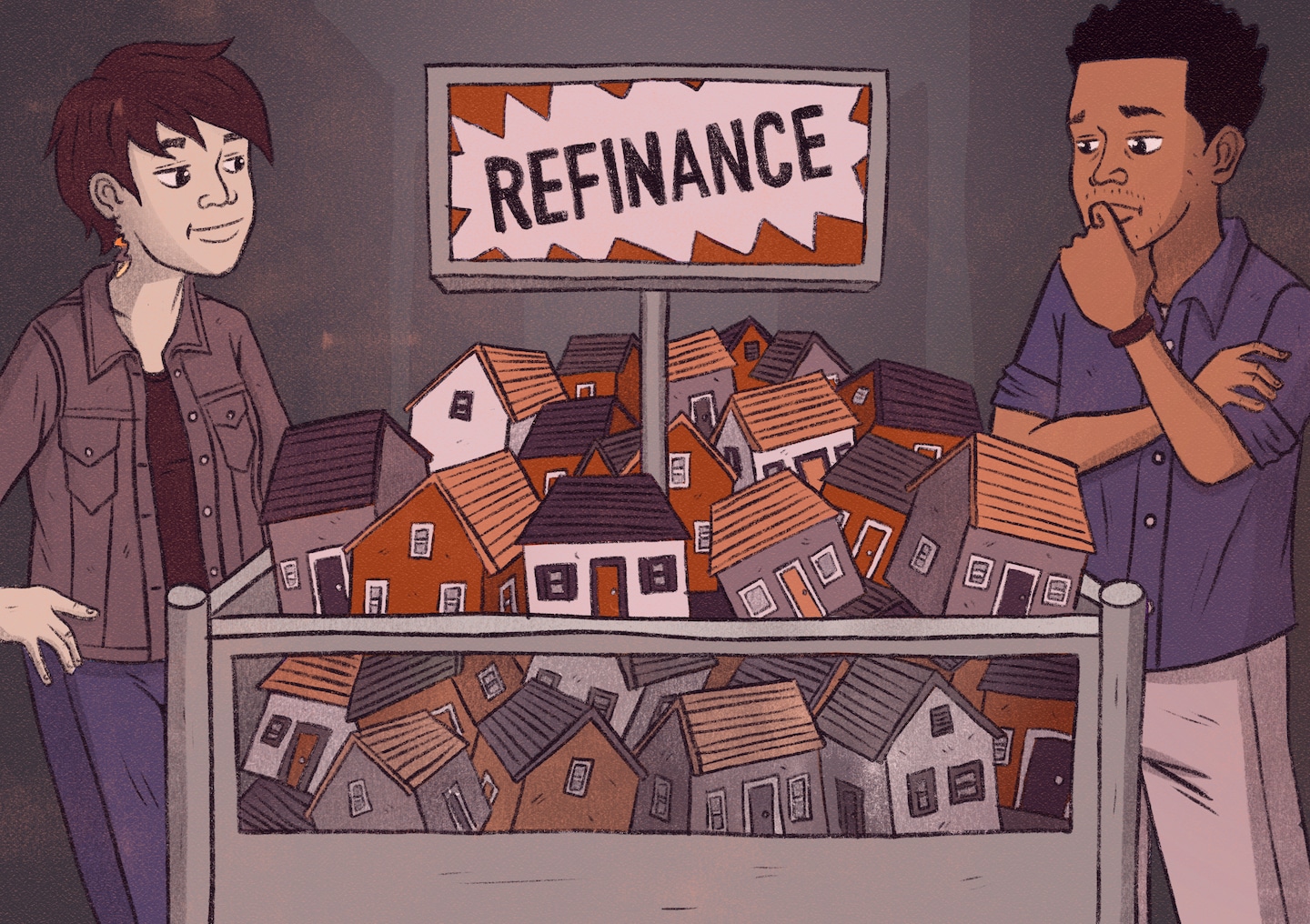Mortgage rates resume their ascent

Freddie Mac, the federally chartered mortgage investor, aggregates rates from about 80 lenders across the country to come up with weekly national averages. The survey is based on home purchase mortgages. Rates for refinances may be different. It uses rates for high-quality borrowers with strong credit scores and large down payments. Because of the criteria, these rates are not available to every borrower.
The 15-year fixed-rate average rose to 3.09 percent with an average 0.8 point. It was 3.01 percent a week ago and 2.38 percent a year ago. The five-year adjustable-rate average grew to 2.97 percent with an average 0.3 point. It was 2.91 percent a week ago and 2.77 percent a year ago.
“The Freddie Mac fixed rate for a 30-year loan rebounded this week, following the jump in the 10-year Treasury,” said George Ratiu, manager of economic research at Realtor.com. “Investors worried about mounting inflation. … All eyes are on the Federal Reserve meeting next week, as we expect the bank to increase the [federal] funds rate. The big question on many analysts’ minds is whether a 25 basis point hike will be enough given the significant shortage of labor and inflation at levels not seen since the 1980s.”
After hitting 2.05 percent in mid-February, the yield on the 10-year Treasury sank to 1.72 percent to start the month. It has steadily climbed back toward 2 percent, closing at 1.94 percent on Wednesday. With Thursday’s news about inflation, long-term bond yields are anticipated to continue their upward march. Because mortgage rates tend to follow the same path as Treasury yields, they are also expected to rise.
“The flight to safety caused by events in Ukraine is, at least temporarily, turning into a flight to opportunity with capital flowing from equities and other harbors of safety into Western currencies and commodities instead of into 10-year Treasury notes,” said Ken H. Johnson, real estate economist at Florida Atlantic University.
Consumer price index data, released Thursday morning, showed prices rose 7.9 percent in February, compared with a year ago, as inflation remained at 40-year highs. Inflation causes fixed-income investments such as bonds to lose value, which is why investors demand more in return for holding them. When yields rise, it’s because investors want to be paid more for lending long term.
“The spike in oil and other commodity prices will lead to additional inflation — but not the type of inflation the Fed can fix,” said Greg McBride, chief financial analyst at Bankrate.com. “Inflation is a bond investor’s worst enemy so this is the dominant risk to mortgage rates.”
Bankrate.com, which puts out a weekly mortgage rate trend index, found nearly three-quarters of the experts it surveyed expect rates to rise in the coming week.
“While the Russian invasion of Ukraine is still on the minds of bond traders and investors, keeping yields and mortgage rates lower than they would be otherwise, the rise in oil prices is renewing and strengthening their concerns about inflation,” said Michael Becker, branch manager at Sierra Pacific Mortgage. “Oil prices and even gas prices at the pump have been rising drastically. This focus on possible future inflation will cause bonds yields and mortgage rates to rise.”
Meanwhile, mortgage applications picked up last week. The market composite index — a measure of total loan application volume — increased 8.5 percent from a week earlier, according to Mortgage Bankers Association data.
The refinance index rose 9 percent but was down 50 percent from a year ago. The purchase index also went up 9 percent. The refinance share of mortgage activity accounted for 49.5 percent of applications.
“Applications to refinance and buy a home both posted solid weekly gains,” said Bob Broeksmit, MBA’s president and chief executive. “MBA expects mortgage rates to be volatile in the weeks ahead, as inflationary pressures and investor concern due to the conflict in Ukraine move the 10-year Treasury yield in competing directions.”
The MBA also released its mortgage credit availability index (MCAI) that showed credit availability increased in February. The MCAI rose 1 percent to 126 last month. An increase in the MCAI indicates lending standards are loosening, while a decrease signals they are tightening.
“Credit availability increased to its highest level since May 2021, driven by growth in jumbo loan programs, as well as those that include allowances for ARMs and expanded credit score and [loan-to-value] requirements,” Joel Kan, an MBA economist, said in a statement. “In a period of rising mortgage rates, affordability challenges, and declining volume, lenders have made efforts to slightly broaden their product offerings.”
Fannie Mae released its quarterly mortgage lender sentiment survey Thursday. It showed three-quarters of the lenders it surveyed expect their profit margins to decrease as mortgage rates rise, up from 65 percent in the fourth quarter of 2021. The top reasons the lenders cited for why they expect a decline in profitability were competition from other lenders, market trend changes and consumer demand.
“Rising interest rates, lack of supply and strong home price appreciation have reduced refinance activity and further constrained home purchase affordability, which, of course, is dampening lenders’ expectations of future business activity,” Doug Duncan, Fannie Mae’s chief economist, said in a statement. “Numerous uncertainties, including heightened inflation and the Fed’s monetary policy reaction, which must now also account for the inflationary impact of Russia’s war on Ukraine, suggest increased market volatility.”






